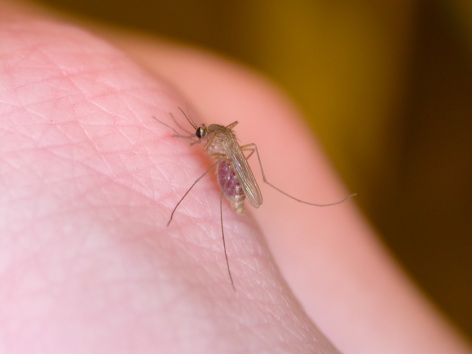AMES, Iowa – Iowa State University will take part in a new consortium aimed at producing research and training programs related to vector-borne diseases such as those transmitted by mosquitoes and ticks.
The Upper Midwestern Center of Excellence in Vector Borne Diseases, funded by a $10 million grant from the Centers for Disease Control and Prevention, will provide new opportunities for collaboration and boost surveillance and prevention efforts regarding vector-borne disease, or illnesses spread by the bite of infected insects.
The center will be led by personnel at the University of Wisconsin-Madison and also includes the University of Illinois, Michigan State University and the Minnesota Department of Health.
Ryan Smith, an assistant professor of entomology and head of the ISU Medical Entomology Laboratory, will oversee Iowa State’s contribution to the center. Smith said the intensity of mosquito and tick activity throughout the Midwest makes the new center’s mission even more important.
“The Regional Center of Excellence allows us to tackle bigger questions in vector-borne disease transmission in the Midwest,” Smith said. “By combining our resources and expertise, we can approach issues such as West Nile and Lyme disease without the limitations of state borders. We are very excited to be a part of this opportunity.”
The new center will conduct research to improve the ability to predict disease emergence and optimize surveillance and disease detection efforts. The center also will create new opportunities for graduate-level training in vector-borne disease research and establish a national network of scientists at the state and local levels to better coordinate surveillance and outbreak response.
Smith will focus on enhanced surveillance of West Nile Virus transmission and the presence of invasive Aedes mosquito species in Iowa.
In addition, two other ISU faculty members will contribute to the center. Joel Coats, a Distinguished Professor of entomology, will work to discover new tools for controlling mosquito and tick populations, as well as prevent exposure to them. These efforts will focus on the development of new, natural repellents and insecticides.
Bradley Blitvich, an associate professor of veterinary microbiology and preventative medicine, will work with the center to develop better diagnostic tools to detect antibodies associated with the Lyme disease pathogen in wildlife populations.
